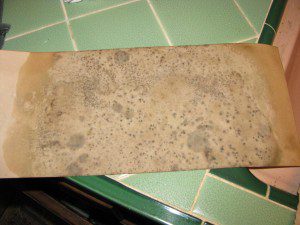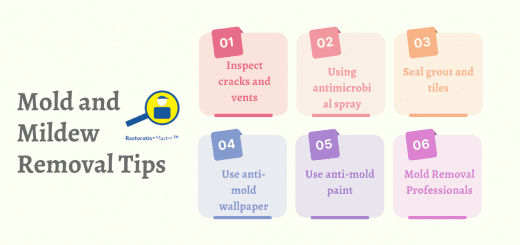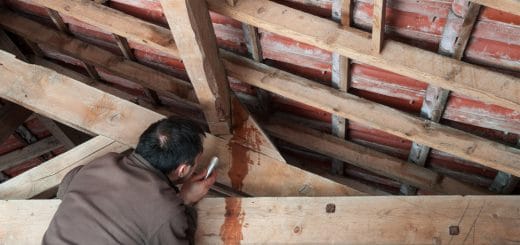Identifying and Controlling Household Mold
 Asthma symptoms that worsen over time may have more to do with your home than your physical health. If you or someone in your family has experienced chest tightness, chronic cough, shortness of breath, and wheezing, you may want to check for moldMold is a type of fungus that grows in damp or humid conditi... More. It’s a common indoor asthma trigger and sporesSpores are microscopic reproductive units of fungi or mold t... More are everywhere in the air. All they need to grow are darkness, moisture, and a nutrient source that can be found in wood, drywall, or fabric. In just days, sporesSpores are microscopic reproductive units of fungi or mold t... More can grow and worsen breathing issues.
Asthma symptoms that worsen over time may have more to do with your home than your physical health. If you or someone in your family has experienced chest tightness, chronic cough, shortness of breath, and wheezing, you may want to check for moldMold is a type of fungus that grows in damp or humid conditi... More. It’s a common indoor asthma trigger and sporesSpores are microscopic reproductive units of fungi or mold t... More are everywhere in the air. All they need to grow are darkness, moisture, and a nutrient source that can be found in wood, drywall, or fabric. In just days, sporesSpores are microscopic reproductive units of fungi or mold t... More can grow and worsen breathing issues.
If you smell a musty, moldy odorAn odor is a smell, often detectable by the human nose, whic... More, try to follow it and look for obvious mold growth. You may find signs of previous water damage, like discoloration on walls or ceilings. Check rooms that use water, like kitchens, bathrooms, and laundry rooms, and in the basement. Leaky pipes in walls are a common cause of moldMold is a type of fungus that grows in damp or humid conditi... More. It can grow behind wallpaper, tile, or paneling so don’t forget to check these places as well.
Here are a few tips to control moldMold is a type of fungus that grows in damp or humid conditi... More growth and lessen the effects on your asthma:
- RepairRepair is the act of fixing or restoring damaged property, m... More any water leaks as soon as possible and clean up all standing water and moisture. Use a wet/dry vacuum, fans, and a dehumidifierA dehumidifier is a device that removes excess moisture from... More.
- Appliances that create moisture, like dryers and stoves, should be vented outdoors to keep it out of the air.
- Avoid carpeting in high humidityHumidity is the amount of moisture or water vapor present in... More rooms like bathrooms. Wash bath mats frequently to prevent moldMold is a type of fungus that grows in damp or humid conditi... More growth.
- Keep indoor humidityHumidity is the amount of moisture or water vapor present in... More below 50% by using a dehumidifierA dehumidifier is a device that removes excess moisture from... More regularly. Cool your home with an air conditioner during the hot, humid summer months if possible.
- Use paint that’s labeled “moldMold is a type of fungus that grows in damp or humid conditi... More resistant” in high humidityHumidity is the amount of moisture or water vapor present in... More areas like basements, bathrooms, and kitchens.
- Keep drip pans from appliances like refrigerators and air conditioners clean and dry.
At the first sign of moldMold is a type of fungus that grows in damp or humid conditi... More in your home or business, call the professionals at RestorationMaster for mold remediation services. MoldMold is a type of fungus that grows in damp or humid conditi... More is dangerous to both people and property and the longer you wait, the more damage is done. MoldMold is a type of fungus that grows in damp or humid conditi... More removal specialists use only the best testing and cleaning methods in the industry and have completed advanced training in water mitigation and mold remediation.
Mold remediationMold remediation is the process of identifying, removing, an... More costs vary, depending on the size of the home and the extent of the damage. According to HomeAdvisor.com, the national average for testing is $770.00 and the national average for cleanup is $2,151.00.












